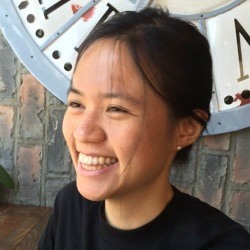At Thinkers Café, a dimly lit café near Peking University, Yan Lianke chooses a side table with a desk lamp that flickers on and off as we speak. The outspoken author and ex-military man is strikingly mild-mannered.
Yan enlisted in the army when he was a teenager. He spent the next two decades as a military propaganda writer, while testing the state censors’ limits and his army superiors’ patience with an increasingly ambitious and politically pointed series of short stories and novels. Eventually, after the publication of The Joy of Living, a story about a village of disabled peasants, Yan was asked to leave the army. His next two novels, about impoverished peasants who contract AIDS via illegal bloodselling and starvation during the Great Leap Forward, have both been banned in mainland China.
What are you working on at the moment?
A story that asks how a tiny village can be transformed into a giant metropolis within decades. Everyone says it’s because of economic reform, because of opening up, but I don’t think China’s success today was driven by mere power, money, or idealism.
The first book you wrote that was censored was Serve the People!—since then, Dream of Ding Village and Four Books have been banned in mainland China. How has your attitude toward the censorship of your work changed over time?
I used to think: OK, if you won’t let me write about this one thing, I’ll find something else to write about. But then I found that I had become a controversial writer, I began to think: what is wrong with my work? Editors who were gentle with other writers were treating my work with suspicion. People believed that I had betrayed Chinese society.
Every Chinese author thinks that their own writing is free and uncurbed, but only because we’re not aware of the restrictions we have internalized: the most chilling thing is the way we censor ourselves. We need to acquire a degree of inner freedom. We can’t blame everything on the state censors.
In your essay, you describe writing as your “democracy and liberation.” Can you elaborate on why you said that?
To understand ourselves and the people around us, we need to start by liberating ourselves. If censorship is the most significant constraint on our writing, why did the former Soviet Union produce so many celebrated writers despite the Great Terror, and why haven’t we? China is a great environment for an author, because such implausible things happen in everyday life. For instance, the AIDS villages [in which impoverished villagers who sold their blood for cash contracted AIDS via contaminated needles] were a big deal, but no sooner had we started paying attention to them than something else became a big deal. These incredible events happen one after another like waves.
Many people would rather focus on the fact that China is making progress and people’s lives are getting better. Are they right?
Most people don’t care for civil rights or a democratic say. I am disappointed by the generation born after 1980. They hang on to their ignorance: give me money, they say, give me an apartment. Everyone has vested interests, including the intellectuals. If the literary scene were to change, the pitiful degree of power and recognition they now enjoy would become worthless.
You’ve written about how even your mother and siblings don’t understand why you are so critical of the government.
If my brothers and sisters don’t understand me—well, they live in the village and haven’t read my books. My loneliness isn’t driven by my family’s attitude or the number of readers I have: it stems from the way that other writers look at me. Out of a hundred fellow writers, ninety-nine keep a distance from me.
Knowing that it might not be published, for whom did you write Four Books? Was it for the intellectuals to whom the book is dedicated?
I simply wanted to portray a time period that has been forgotten, even by intellectuals. Memories of the starvation only live on in the villages, where our grandparents can tell us how much they suffered, how many people died. Our children don’t need textbooks to tell them what happened, because textbooks can only give you facts. I simply wanted to portray a time period that has been forgotten, even by intellectuals. Memories of starvation [during the Great Leap Forward] only live on in the villages. Our grandparents remember how many people died, but our children only read the statistics in textbooks. To them, it’s just a historical event.
You’ve said before that you wanted to write about Tian’anmen sometime—do you still?
Not right now. Given that Four Books was impossible to publish, writing about June 4th would only make my work even more misunderstood. Perhaps if the book I’m working on right now gets published, I’ll think about it.
I always have a few story ideas in mind, but when the novel gets written doesn’t just depend on whether the story itself and my writing technique are ripe for it—it also depends on whether the timing is ripe for that story. If I write about June 4th now, people will just say I wrote about it to give Western readers what they want. They think that I don’t want to be published, but the opposite is true: in my heart of hearts, I long to be published. I don’t want a large readership.
What do you want, then?
I want to liberate my writing as much as possible, and I want my work to reach readers. I’ve turned fifty, and I’m aware that time is running out—when I reach seventy I won’t be able to write like this, so while I still have the imagination and energy, I want to write novels that are true to my vision for them. Living in China gives you, as a writer, an explosive degree of energy. Perhaps if we had one hundred percent freedom, we wouldn’t be able to write anything.










